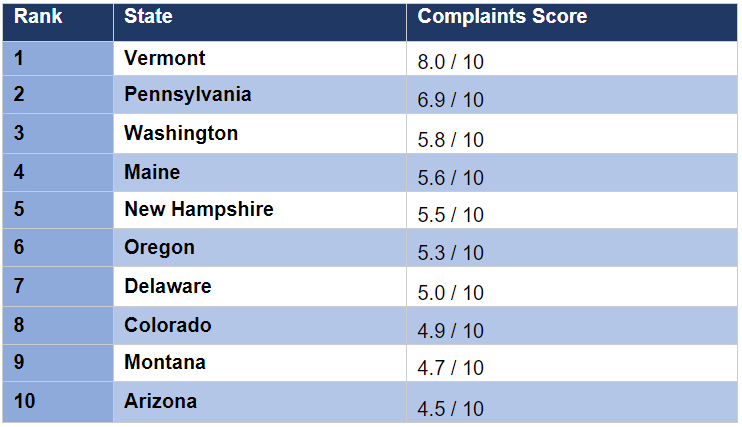Pepsi, Peloton Top List of Most Controversial Ads
New analysis by Illumin found that Pepsi’s `Global Message of Unity’ ad was the most controversial and that Vermont residents were most likely to complain to the FCC about ads

A new analysis of controversial ads by advertising platform Illumin has found that some of the country’s top brands, including Pepsi, Peloton, Gillette and Dove, have launched ads that prompted widespread complaints.
The study also dived into FCC data to highlight the states where consumers have complained the most. It found that Vermont, Pennsylvania and Washington topped the list.
“Successful advertising is more than just a roll of the dice; it's about meticulous planning and thorough research to ensure you’re appealing to your target audience along their journey, rather than offending or annoying them," explained Mark Cluett, director of digital marketing at Illumin
For the state rankings the research analyzed nationwide FCC complaints data over the last year. It compiled a list of the five most controversial ads from the top featured commercials within Google articles that were related to U.S. controversial adverts search on Google.
Based on that data, Illlumin ranked the five most controversial U.S. adverts as:
1. Pepsi's "Global Message of Unity" Commercial (2017)
Perhaps one of the most notorious commercials regarding backlash, Pepsi’s “Global Message of Unity” ad received massive criticism for being tone deaf and inappropriate. The ad featured international supermodel Kendall Jenner handing out cans of Pepsi during a clash between protestors and the police, seemingly saving the day. Viewers complained that the ad trivialized the Black Lives Matter movement, prompting Pepsi to release a statement and pull the advertisement, the researchers reported.
The professional video industry's #1 source for news, trends and product and tech information. Sign up below.
2. Peloton “The Gift That Gives Back” Commercial (2019)
This ad depicted a woman receiving a Peloton exercise bike for Christmas. The woman then records video diaries about how she’s changed for the better because of the gift. This may seem harmless to some, but critics pointed out the sexist undertones of the commercial showing a husband pressuring his wife to keep her weight in check. Reports have suggested the backlash caused the company’s stock to decrease in value by as much as $1.5 billion, the study noted.
3. Gilette “We Believe” Commercial (2019)
In 2019, Gilette released their “We Believe” campaign, which tried to harness the momentum of the #MeToo movement, challenging “is this the best a man can be?”. This statement was soon critiqued by the public for being tone-deaf. Customers were left furious at the commercial, with many threatening to boycott the brand altogether.
4. Snickers “Do Something Manly” Commercial (2007)
The Snickers commercial ran during the 2007 Superbowl and showed two men eating a Snickers bar, leading to an accidental kiss. The men then felt the need to ‘do something manly’ and proceeded to rip out their chest hair - and, in other versions of the ad, even slam their heads under a car bonnet. The ad received many complaints and caused an outcry among gay rights activists, before being branded as homophobic and pulled from TV.
5. Huggies “Dad Test” Commercial (2012)
Way back in 2012, Huggies attempted to create a cheeky spot that poked fun at dads struggling to put diapers on their children. Unfortunately, many dads took offence at the stereotypical implication that men are unwilling or unable to care for their child. Huggies received many complaints, and a petition was even started to remove the advertisement. The brand apologized and even released revamped ads showing confident fathers carrying their babies.
With controversial and upsetting ads clearly still making their way to TV, Illumin also dug into the FCC data over the last year to see how states ranked in terms of residents who were disgruntled about ‘loud’ and ‘indecent’ commercials – with each state scored out of 10.
The top ten states were:
George Winslow is the senior content producer for TV Tech. He has written about the television, media and technology industries for nearly 30 years for such publications as Broadcasting & Cable, Multichannel News and TV Tech. Over the years, he has edited a number of magazines, including Multichannel News International and World Screen, and moderated panels at such major industry events as NAB and MIP TV. He has published two books and dozens of encyclopedia articles on such subjects as the media, New York City history and economics.


